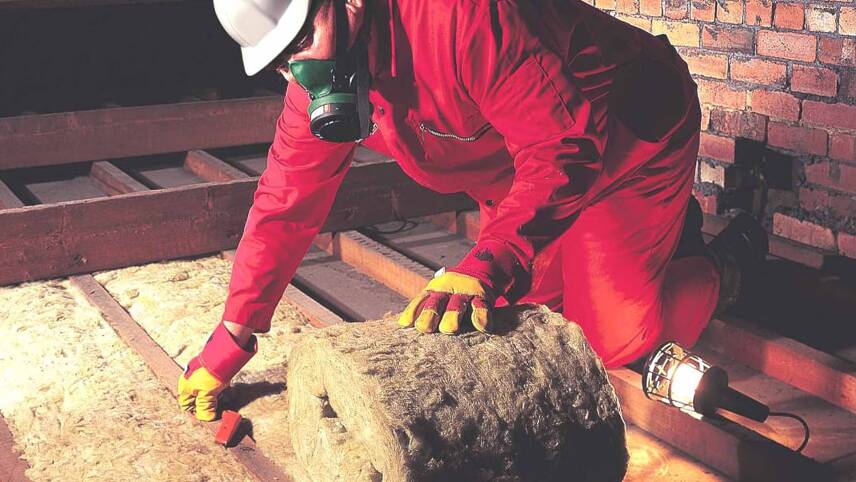Member only content free until 26/05/2024
To continue reading this article and enjoying free access to all Utility Week’s content up to the 26/05/2024 Register today!
Ready to become a member?

Homeowners would be forced to meet minimum energy efficiency standards before they were able to sell their homes under radical new proposals from an industry trade body.
The Association for Decentralised Energy (ADE) has outlined its thinking in a new report which has warned that the government’s Heat and Building Strategy target to upgrade most of the UK’s 17 million inefficient homes by 2035 will not be met unless new regulatory standards are introduced.
It said two-thirds of the 17 million are owner-occupied and that this sector “has seen little progress to date”.
The trade association’s report calculated that eight million lofts, 5.2 million cavity wall properties, and 7.7 million solid wall properties remain without insulation.
“So boosting the market through regulatory standards can kick-start investment and growth,” it added.
ADE further took aim at Energy Performance Certificates (EPCs), which it called a “flawed metric due to inaccuracy and cost saving assumptions”. It instead advocated Building Renovation Passports which it said are a more accurate measure, yet to be introduced. These are based on data gathered from a specific building rather than averages.
ADE has proposed a number of options for improving the energy efficiency standards of owner-occupier homes and has suggested the introduction of green finance products to help fund the upgrades. It warned that without these, the upfront costs would be “too large and unjust for households”.
As part of a phased approach, the trade body is recommending that from 2026 homes bought/sold or sufficiently renovated have loft insulation to 270mm and/or cavity wall insulation “where required and technically possible”.
Homeowners could recover the costs, which would be capped at £2,500, from green financing options.
Alongside this measure “detailed and dedicated energy efficiency advice” would be mandated, as well as a Building Renovation Passport.
If the initial phase is successful, the government should introduce more advanced measures in 2029.
One option mooted is to require homes to have all insulation measures, including solid wall insulation, installed where possible. A cost cap of either £15,000 or 4% of the property value is included, coming into effect with whichever threshold is reached first.
While this option would mean each home will be fully insulated in one go, the ADE acknowledges this would be more expensive and challenging to regulate due to the broader scope.
The most ambitious option proposed is for all homes to be a minimum of EPC band C, or the highest EPC band possible in that property. Again the costs of this should be recovered from green financing options and a cost cap of either £15,000 or 4% of the property value is included, coming into effect with whichever threshold is reached first.
Chris Friedler, energy efficiency policy manager at the ADE, said: “Implementing minimum energy efficiency standards on households at the point of sale will have a transformative impact on gas usage in the UK, thereby tackling climate change, enhancing energy security, and reducing bills.
“Moreover, the inclusion of green finance measures will empower households, requiring no upfront payments and with cost caps removing risk.”
A Department for Energy Security and Net Zero spokesperson said: “The government is improving energy efficiency including through our Great British Insulation Scheme which is set to upgrade around 300,000 of the country’s least energy efficient homes.”
It comes as a survey of more than 12,000 adults by consumer charity Citizens Advice found there is very low interest among homeowners to pay for energy efficiency measures such as cavity wall insulation or a heat pump, even if they were affordable.
The charity found that across all measures explored, only two in five homeowners were interested in installing them. It added that a lack of personalised advice appeared to be driving this factor in part.
It found that household income “makes little difference” to levels of interest for cheaper efficiency measures such as double glazing, loft and cavity wall insulation. However, those on lower incomes are less likely to be interested in solid wall insulation, floor insulation and heat pumps.

Yet even among those who are interested, the charity found that only a minority can afford measures without borrowing. Its findings suggest that 50% of homeowners can afford cheaper retrofit measures without additional borrowing, falling to only 16% for heat pumps.
Borrowing is not seen as an attractive option for those unable to afford the upfront costs and the research found that fewer than 20% of homeowners are willing to borrow either through a mortgage or unsecured loan to fund improvements.
Furthermore, clear incentives are needed to increase interest in energy efficiency measures. Almost 40% of homeowners said they are more willing to pay for measures when they understand the potential financial benefits of an efficient home.
“Without significant and coordinated action across all of these identified challenges, demand will remain low, stalling the country’s progress towards net zero,” the charity added.




Please login or Register to leave a comment.